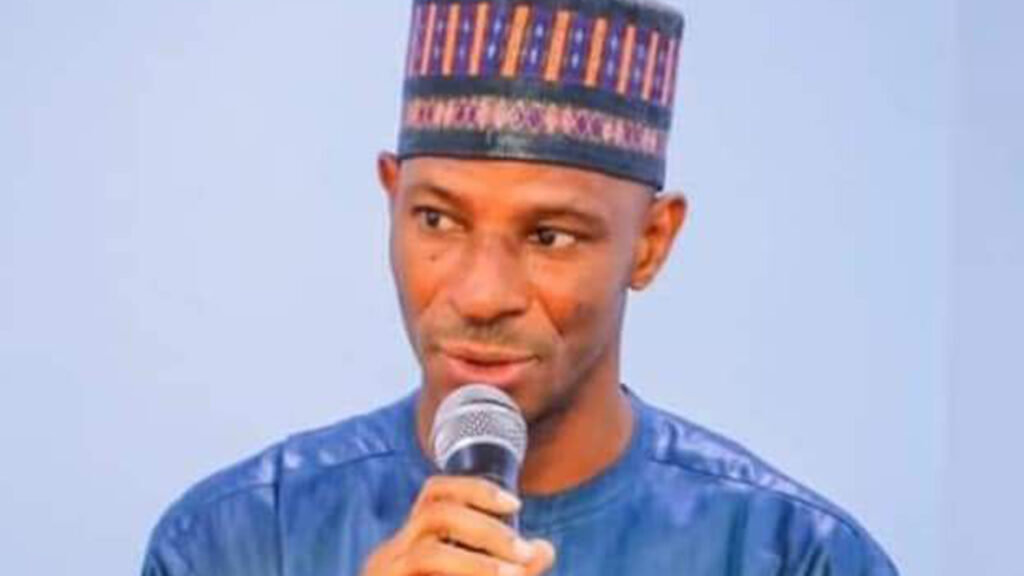 WITH the public declaration of their assets, President Muhammadu Buhari and Vice President Yemi Osinbajo have reinforced an ethical dimension of governance that was introduced by the late Musa Yar’Adua as the first Nigerian leader to have publicly disclosed his assets. Theirs is an example that is extremely good and should be followed by all public office holders. The nation’s constitution requires every public official to declare his or her assets to the Code of Conduct Bureau (CCB). But the law does not demand that the declaration should be made public. For a country desperately in need of the enthronement of transparency and accountability, however, going that extra length is the appropriate signal. And all must follow that signal.
WITH the public declaration of their assets, President Muhammadu Buhari and Vice President Yemi Osinbajo have reinforced an ethical dimension of governance that was introduced by the late Musa Yar’Adua as the first Nigerian leader to have publicly disclosed his assets. Theirs is an example that is extremely good and should be followed by all public office holders. The nation’s constitution requires every public official to declare his or her assets to the Code of Conduct Bureau (CCB). But the law does not demand that the declaration should be made public. For a country desperately in need of the enthronement of transparency and accountability, however, going that extra length is the appropriate signal. And all must follow that signal.
Buhari and Osinbajo made their assets’ declarations public amid an unnecessary pall of controversy over whether they should have done so, do this or not, a controversy that was unnecessarily triggered by the presidency which denied that Buhari ever promised to make his assets’ declaration public. It insisted that it was the president’s party, the All Progressives Congress (APC), that promised during the electioneering for the presidential election that he would make his assets’ declaration public if he won.
So it would seem that apparently bowing to public pressure, Buhari and Osinbajo made their assets’ declarations public. Some elected officials have now taken a cue from this and publicly declared their assets too. But state governors from the ruling APC and the opposition Peoples Democratic Party (PDP) have made it clear to all that they would not make their assets’ declarations public, insisting that by declaring their assets to the CCB, they have complied with the nation’s constitution. They may be legally right. But they are morally wrong. And Nigerians expect them to change their stance.
In line with the mantra of the APC to bring positive change to the polity, the action of the President and the Vice President was not surprising. However, a surprise that has jarred public consciousness is why the two men initially failed to make the gesture much more ennobling by doing so promptly and voluntarily.
They did not have to wait for the public to mount pressure on them before doing what Nigerians who vouch for their integrity expected them to do. Nigerians who voted for them on the assumption that they would enthrone transparency in governance needed not be kept waiting that long. Be that as it may, there is now the worry that some of the assets that were declared, like houses, cattle and shares have no monetary value placed on them. Worse still, their liabilities were not declared as required by the constitution. The danger that has been hinted at here is that the failure of public officials to declare their liabilities could be a veritable means of corrupt enrichment as such officers could conveniently use state funds to defray those liabilities.
It is indeed important to note that in order to avoid a situation whereby assets like property that have been declared are overvalued as a potential means of misappropriating public funds, the Nigerian Institution of Estate Surveyors and Valuers (NIESV) has stressed the point that one of its certified members must be allowed to present a valuation report so that the declaration of any asset can be authentic and valid. Such a measure, indeed, would prevent anticipatory declaration.
However, it is understandable that some persons are not well-disposed to publicly disclosing their assets because they see this as an invasion of their privacy. Therefore, the gesture could indeed be a disincentive to the involvement in public service of credible citizens who are ordinarily wealthy but do not want the public attention that making their assets public may bring. But this should not remove from the significance of the law and gesture. It stands to reason that only those who are ready to comply with it should seek public service. Of course, this leads to the need for citizens to purge their minds of the notion that for one to be acceptable as a public official, such a person must be poor. Integrity does not necessarily connote poverty, just as not all wealth is acquired through corruption. And there are many people who have genuinely worked for their wealth. So if such people decide to serve their nation, they should not be discouraged by the fear of any stigmatisation as a result of the presumption that anyone who is wealthy could only have corruptly enriched himself or herself in one way or another.
While the public declaration of assets is not a legal issue, its morality should sway public office holders into accepting it. In this regard, all public officers, especially governors, should make their assets’ declarations public in the spirit of accountability and transparency. Except they have something to hide, this is the best path for them to take to prove to those who have entrusted them with the responsibility of governance that they would judiciously deploy available resources to improving the lot of the people. Public office holders must take cognisance of the fact that the price they must pay for the people’s trust in them is service to the people and accountability and transparency in that course. Herein lies the significance of the example of the President and Vice-President.










